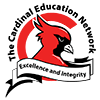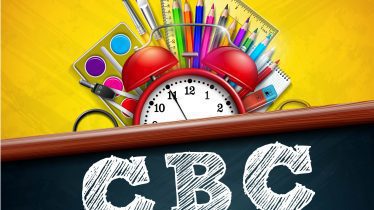KCPE Revision Made Easy – The Primary Syllabus Templates
The Kenya Certificate of Primary Examination marks the end of primary school education and beckons the imminent transition of learners to secondary school. The examination tests the knowledge acquired over the 8 years of primary school in three (3) short days.
The 8-4-4 system of education which has been established to be teacher-centered favors the tyranny of content coverage. It requires learners in primary school to consume large amounts of information after which the extent to which they can remember what they were taught is tested.
After 8 long years of primary education, preparing for the national examinations is definitely a nightmare for many learners. However much they read, up to the last minute, there is always that lingering concern at the back of their minds in respect of syllabus coverage – whether it has been adequately and comprehensively executed. Some learners are known to have developed mental disorders as a result of the intense exam pressure and overexertion during revision processes leading to poor performance.
The Syllabus and Education
Success in the KCPE national examinations is dependent on various factors, one of which is proper syllabi execution. A syllabus is a guide or reference document used by educators. It outlines the key elements of a course including, the teaching philosophy, learning goals and objectives, learner and instructor responsibilities, course name, structure and content, instruction and learning resources, delivery timelines, assessment, and grading approaches among others.
Limited appreciation of syllabi provisions and how these impact learning and performance has been the downfall of many a learner and institution. One fundamental objective of a syllabus is to define the confines within which learning should happen to avoid information overload for learners at different stages of learning.
Many teachers, unfortunately, rely on textbooks or borrowed notes and schemes, in instruction and related processes. Unfortunately, too for many learners, their only points of reference are course and revision books, many of which incorporate additional information beyond what is defined in the syllabus. Ignorant teachers and learners thus end up expending precious effort on worthless content that will never be tested.
In this blog, we highlight some syllabus-related challenges and advance potential solutions that can help in surmounting them.
Syllabus-related Examination Challenges
The factors below directly contribute to challenges experienced by learners come examination time:
- Instructors not using syllabus as a guide in their teaching and teaching irrelevant content.
- Instructors skipping content in a rush to register completion of syllabi and meet steep targets in this regard.
- Instructors running out of time due to slow coverage of the syllabus
- Broadness of the syllabi and learning material, teacher-centered instruction approaches, and extra work to conform to market demands or counter stiff competition, all compete for the learners’ attention leaving little room for them to engage in personal study and revision.
- Truancy and procrastination of learners who neglect their books and realize their mistake only too late, at which point they attempt to cram years’ worth of content in only a few days.
- The recency effect where many learners concentrate their efforts on the revision of content covered in the final years of school.
- Ignorance and a limited line of sight with both teachers and learners having little appreciation of topics, end-to-end. Many are limited in their ability to discern and connect the content taught in the different topics and how it progresses from one class to another. This impacts the flow and understanding of information, and causes confusion in interpretation and answering questions, especially where the content of different topics or subjects may be related.
- Adverse impact of learning by rote on the understanding of core concepts and developing essential competencies.
Repackaged 8-4-4 Syllabus in Template Format (Classes 4-8)
It is important that teachers and learners are supported to understand and work in line with syllabus provisions in order to make learning more focused, manageable, and less stressful.
With a proper line of sight, teachers are able to curate examinable learning content into level appropriate bite-sized portions that learners can easily consume and process. It is even better for learners if the information is presented in an organized manner that assists them in easily identifying core concepts and information.
Repackaged comprehensive 8-4-4 primary syllabi for SST and Science subjects presented in template format is now available online. They are
- pre-packaged by topic end-to-end (Class 4 to Class 8 only) with information that falls under specific topics consolidated to facilitate complete line of sight.
- presented in easy to use formats with structured and adequate spaces for entering appropriate information.
- Populated with topics and defined learning areas as provided in the syllabi to facilitate focused study and ordered note taking.
How to use the Primary Syllabus Template
The documents can be used to:
- guide revision and personal study as it highlights core content as provided in the syllabus.
- create summary notes which can be used for reference and quick study before exams. This will alleviate the need for learners to carry around and read bulky and overwhelming text books.
- remind users of important subject content that they may have forgotten or overlooked.
- test learners to establish their recollection of syllabus content.
Access the repackaged primary syllabi templates here.
KCPE Past Papers
Alongside studying, regular testing is recommended to establish one’s grasp of concepts that have been taught, and ability to recall related content. With the ongoing facing out of the 8-4-4 system, many publishers have also ceased publishing revision books. Specific to KCPE past papers, many learners have been forced to rely on old editions which are not comprehensive, or on alternatives created by business with no teaching background and which, consequently, do not meet KCPE standards. To make matters worse, due to the short academic year schools have limited time to put towards administering, marking and revising past papers. It is left to individual candidates to find time and papers for personal practice. In these harsh economic times, parents are finding it increasingly difficult to retain the services of dedicated teachers to support the candidates in marking and subsequent revision processes.
The good news is that KCPE past papers are now available online at Quizmaster. Users can, through personalized dashboards, instantly access tests from anywhere using internet enabled devices including smart phones, tablets, iPads, laptops, and desktop computers. Marking of tests is automated, enabling users to get immediate results. It is a good exam preparation practice resource, especially for young people who spend a lot of time online. It helps to gauge their level of preparedness and provides valuable insight on where to concentrate instruction, remedial or revision efforts.
Subscribers to the Premium package have an added advantage in that they can instantly:
- sort and filter past KCPE questions, including by year, topic, and subtopic, and know the critical topics and content.
- know the frequently asked questions and how they are presented in the exam over the years.
- instantly create bespoke tests, using the preloaded questions and answers, which can be administered digitally or downloaded.
General Study Tips
Under the 8-4-4 system of education, most subjects are memory dependent. Below are some general study tips that promote better content retention and recall:
- focus on core material as specified in the syllabus. Be keen not to waste time on information that has been expressly specified in the syllabus as ‘not required’.
- study smaller portions at a time and for shorter periods. Take adequate breaks between study times.
- organize your information in a way that makes sense. Highlight important points and rewrite them in a summarized format in your own words. A useful resource in this regard is the primary syllabus template.
- Review your short notes regularly.
- Self-test yourself regularly to gauge what you can recall, familiarize yourself with exam questions, and improve your test taking skills.
- Eat a healthy diet, exercise, and get adequate rest.
- Use memory aids like mnemonics, flash cards, visual metaphors and analogies, mind maps which you can reference including while on the move. You can also use the technique of linking your content information to something or situation that you know.




